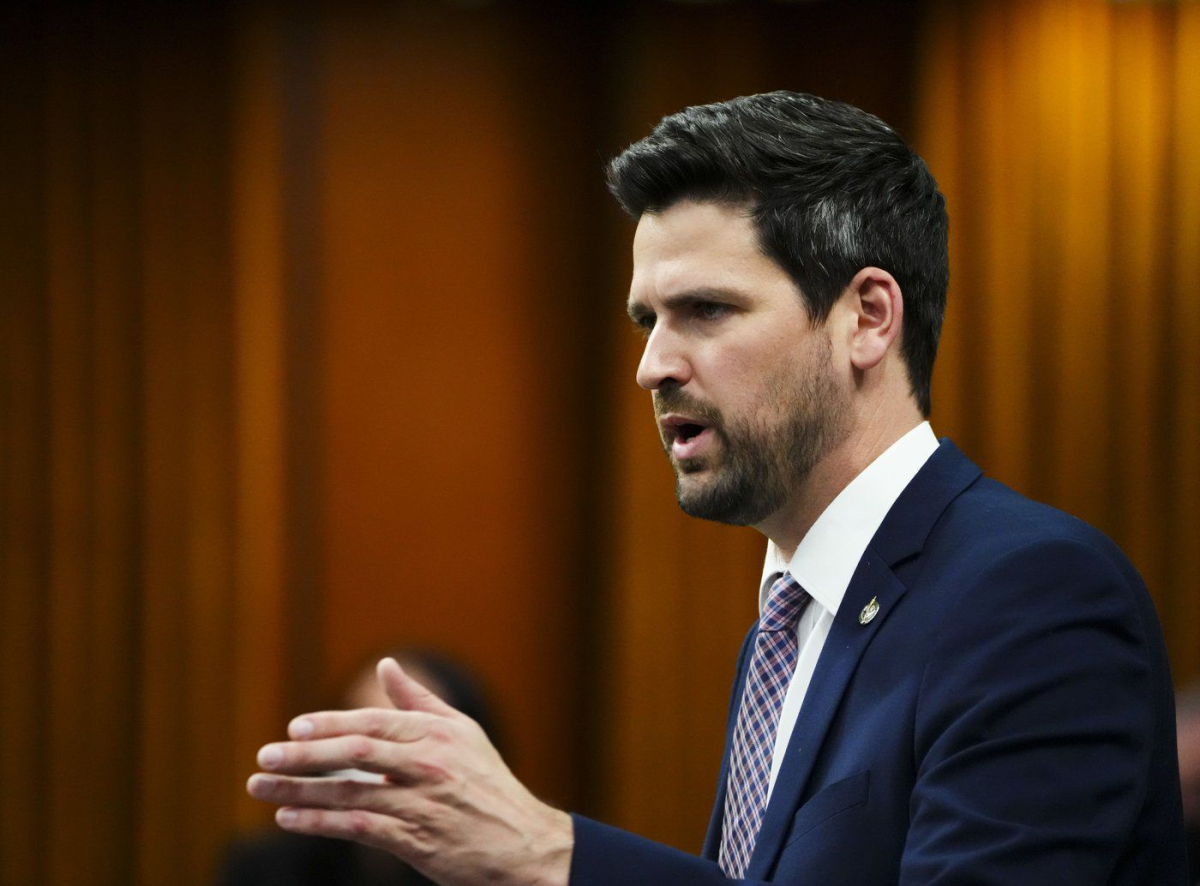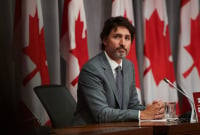Support strong Canadian climate journalism for 2025
Canada will extend some settlement services to fleeing Ukrainians, but they will not receive all of the same supports as typical refugees, the federal immigration minister said Wednesday.
Many Ukrainians who've applied to come to Canada are doing so under a special visitor visa program that would allow them to work and study for three years while they decide whether or not to return home.
So far about 60,000 Ukrainians and their families have applied to come to Canada under that program, and another 12,000 have come under traditional immigration streams since January.
Immigration Minister Sean Fraser said one of the challenges is figuring out how much support people will need when they arrive. The United Nations refugee agency, UNHCR, estimates four million have fled Ukraine in the last five weeks and most are older people, women and children.
"Typically, when we bring people in as refugees, when we are selecting people on the basis of their vulnerability, we know that they’re going to need extensive supports," Fraser told reporters on his way out of a Liberal caucus meeting Wednesday.
"With the situation in Ukraine, there are some people who are going to have that same level of vulnerability and there are others who may not need the same scale of services."
The minister's office says the government is working with the Canadian Red Cross and 550 settlement agencies to deliver language training, help finding a job and orientation services.
The government said Settlement Program services, which are typically only available to permanent residents, will be extended until March 31, 2023, for temporary residents in Canada eligible under the Canada-Ukraine authorization for emergency travel.
Starting in early April, the Canadian Red Cross will provide arrival services at the Toronto, Edmonton and Vancouver international airports.
The government said this support will include providing translation services, as well as information in their language of choice to help connect Ukrainians with government and community services.
Canada has opened the program to an unlimited number of applicants, and also plans to launch a family reunification program to allow people who fled Ukraine to become permanent residents of Canada if they have relatives in the country.
Typically refugee resettlement begins years after a conflict, as people wish to remain close to their home country in case they are able to return.
Those who arrive under refugee resettlement programs are offered temporary housing, help to find permanent accommodations, financial assistance, and sponsorship, either through the government or private groups.
So far, Fraser says, the government has opted not to provide temporary accommodation or financial assistance for Ukrainians.
"We’re continuing to have conversations right now about what other measures we may advance. As you can appreciate, we continue to do more and more as time goes on, as we understand the unique needs of different groups that are going to be arriving," he said.
The Ukrainian Canadian Congress has called for the government and its partners to offer financial assistance to support Ukrainian newcomers through their first 90 days in Canada, and possibly even emergency shelter space for those who do not have anywhere to go once they arrive.
"They're going to be traumatized, we know that they are going to have needs that are not going to be able to (be) immediately met," said Ihor Michalchyshyn, CEO of the Ukrainian Canadian Congress. "They can't find a job or an apartment that next day."
It's not clear just how many people will actually choose to come to Canada. Though tens of thousands have so far applied, they may just be keeping their options open, Fraser said.
"They are in love with the idea of returning home to Ukraine when it’s safe, but they want to make sure that they’re exercising what options they have to find safe haven, should it be needed. So, it’s difficult to say with precision."
The congress, as well as several other advocacy groups, report long waits in Poland and other countries to complete the biometric requirement to verify the identity of potential newcomers in order to come to Canada.
Fraser said Canada dropped the biometric requirement two days ago for younger people, senior citizens, and people with a travel history to Canada to speed up the process.
"We’re taking an evidence-based approach to make sure we’re not jeopardizing the security outcomes, but are still having a process that will allow as many people to get here as quickly as possible," he said.
This report by The Canadian Press was first published March 30, 2022.




Comments